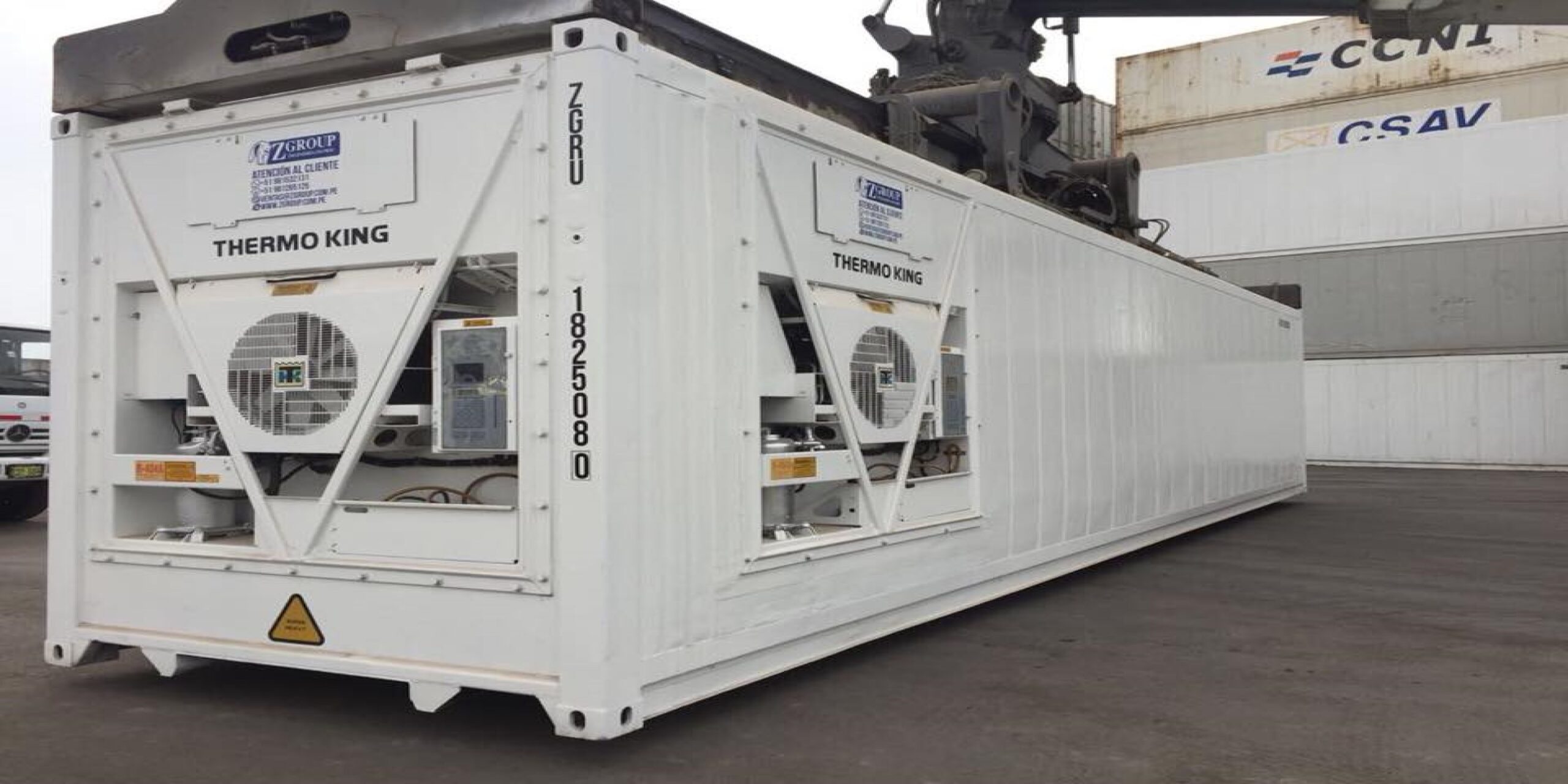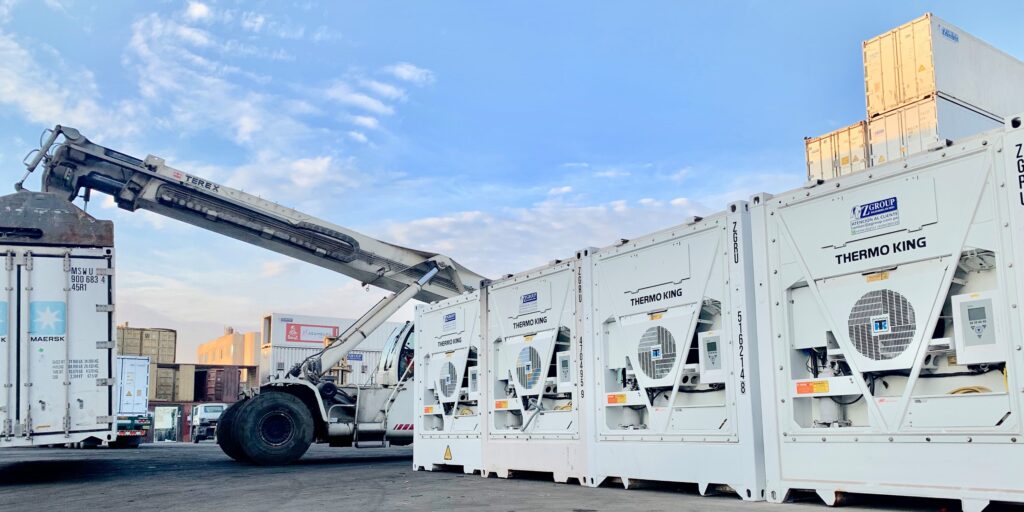The need for refrigerated storage has increased dramatically across a number of businesses in today’s fast-paced world. Reefer containers, sometimes referred to as refrigerated storage containers, provide a flexible way to maintain the safety and quality of items that are sensitive to temperature changes. Because of their ability to maintain a regulated environment, these containers are essential in a variety of sectors, including food service, medicines, and agriculture. This blog will examine the most popular applications for refrigerated storage containers across several industries, emphasizing their advantages and adaptability.
1. The Food and Drink Sector
One of the biggest consumers of refrigerated storage containers is the food and beverage sector. Refrigerated containers guarantee that food stays fresh and safe to eat, whether it is being transported or stored at distribution centers.
Important Uses:
Transporting Fresh food: In order to remain fresh, fruits, vegetables, and other fresh foods need to be kept within certain temperature ranges. By maintaining ideal temperatures during transit, refrigerated containers help reduce spoiling.
Storage of Frozen Goods: Ice cream, frozen meats, and seafood must be stored at sub-zero temperatures. Refrigerated containers designed for freezing applications are an effective way to move and store these goods.
Distribution of Beverages: Cold storage is often necessary to preserve the quality of alcoholic beverages, juices, and soft drinks. For companies that want additional cold storage at busy times, renting a refrigerated container offers a flexible solution.
2. The Pharmaceutical Sector
Temperature control is essential in the pharmaceutical industry to maintain the effectiveness of drugs and vaccines. Refrigerated storage containers are also essential for the delivery and storage of these delicate goods.
Important Uses:
Vaccine Transportation: Vaccines must be stored at a certain temperature for them to continue to work. Vaccines may be safely transported between regions in refrigerated containers without sacrificing their quality.
Storage of Biological Samples: To store biological samples, labs and healthcare institutions need regulated settings. These delicate components may be kept in a controlled and safe environment in refrigerated containers.
Pharmaceutical Distribution: Many pharmaceuticals must be stored and transported within strict temperature limits. Refrigerated containers guarantee the pharmaceutical industry’s adherence to regulatory criteria.
3. Farming
Another sector that greatly benefits from refrigerated storage containers is agriculture. Farmers and wholesalers depend on these containers to preserve the quality of their goods from farm to market as the demand for food rises worldwide.
Important Uses:
Distribution of Fresh Produce: To keep fruits and vegetables fresh and enticing to customers, farmers ship their goods to marketplaces in refrigerated containers.
Transportation of Livestock: Refrigerated transportation may also assist in maintaining the safety and quality of live animals and animal products.
Post-Harvest Storage: After harvest, crops must be kept in a controlled environment to prevent spoilage. For efficient post-harvest management, chilled containers may be placed on fields.
4. E-commerce and retail
Retailers are increasingly employing refrigerated containers to satisfy consumer needs for fresh items delivered straight to their homes as e-commerce grows, particularly in the food industry.
Important Uses:
Last-Mile Delivery: Retailers may use refrigerated containers for last-mile delivery to guarantee that perishable products, such as groceries and meal kits, arrive fresh and ready to eat.
In-Store Storage: To reduce the chance of stockouts, supermarkets might use refrigerated containers as extra storage for seasonal goods or during times of high customer demand.
5. Catering and Events
Temporary refrigeration systems are often needed for events and catering services to handle large amounts of perishable food. Refrigerated containers are a great way to keep food fresh for outdoor parties and gatherings.
Important Uses:
Catering Operations: Catering businesses may hire refrigerated containers to store and transport food to events securely, ensuring that food is kept at the proper temperature until it is served.
Outdoor Festivals and Events: Food sellers often require temporary cold storage solutions during large gatherings. On-site setup of refrigerated containers may provide the ideal atmosphere for food safety.
6. Storage of Chemicals and Hazardous Materials
Certain chemicals and hazardous materials require particular temperature restrictions to guarantee stability and safety. They should be stored in refrigerated container for rent, which are safe.
Important Uses:
Chemical Storage: To avoid reactions that might result in hazardous circumstances, certain chemicals must be kept chilled. Refrigerated containers provide a risk-reducing environment.
Transport of Hazardous Goods: Strict procedures must be followed to transport hazardous goods safely. Refrigerated containers may preserve these materials’ integrity throughout transportation.
Bottom Line
From the food and beverage sector to the pharmaceutical and agricultural sectors, refrigerated storage containers are an essential resource. Their capacity to sustain exact temperature controls guarantees that delicate goods continue to be safe and of the highest caliber throughout storage and transit procedures. Using refrigerated containers is a terrific way for businesses to improve their operations and guarantee the freshness of their goods.Consider contacting ZGROUP USA if you want dependable chilled storage solutions. They provide a range of refrigerated container for rent specifically designed to satisfy your sector’s particular requirements.




